Social Sciences / Political Sciences & Current Affairs

Format: Paperback
Pages: 352
ISBN: 9780822956129
Pub Date: 15 Sep 1996
Description:
The end of communist regimes in Eastern Europe and the USSR produced strikingly little enthusiasm in the United States. The political energy absorbed for forty years by American-Soviet relations left America no triumphant, but reflective, turning inward with a general sense of national decline. American politics and policy have met the rapid changes in the new global order with alarming slowness and inflexibility.
In this book, fourteen leading political scientists ask two basic questions. What effect did the cold war have on American institutions and politics? And how will American politics evolve now? The first section of the volume focuses on institutions-the presidency, Congress, federalism. The second explores politics-ideologies, public opinion, and the American party system. The third section tackles important policy areas: the budget, social issues, education, foreign policy, trade, and immigration. Contributors: Joel D. Aberbach; Tobias D\u00fcrr; Andreas Falke; Adrienne H\u00e9ritier; Peter L\u00f6sche; Theodore J. Lowi; Heinz-Dieter Meyer; Demetrios G. Papademetriou; Paul E. Peterson; Bert A. Rockman; James Thurber; David B. Walker; and the editors.
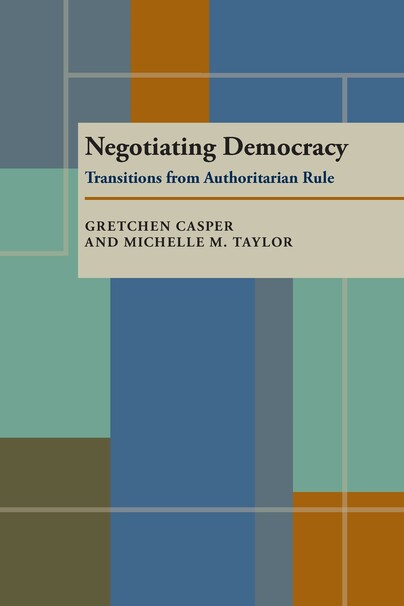
Format: Paperback
Pages: 288
ISBN: 9780822955887
Pub Date: 15 Jun 1996
Description:
This book explains why some countries succeed in installing democracy after authoritarian rule, and why some of these new democracies make progress toward consolidation. Casper and Taylor show that a democratic government can be installed when elite bargaining during the transition process is relatively smooth. They view elite bargaining in twenty-four transitions cases, some where continued authoritarianism was the result, others where a democratic government was the result, and a third outcome where progress towards consolidation was the end product.

Format: Paperback
Pages: 326
ISBN: 9780822956006
Pub Date: 15 May 1996
Description:
Winner of the Harold Lasswell Award of the American Political Science AssociationThe FSFIC failed spectacularly during the 1980s, costing taxpayers an estimated $200 billion. In this award-winning analysis, Rom examines the political causes of this \u201cthrift tragedy.\u201d He directly confronts-and rejects-the dominant scholarly \u201cpublic choice\u201d view that public officials were motivated mainly be self-interest.
Instead, Rom argues that politicians and bureaucrats generally acted in the \u201cpublic spirit\u201d by attempting to obtain the common interest as they saw it. Using new evidence and innovative methods, Rom demonstrates that FSLIC's failure unfolded because of commitments that officials had made in the past and their uncertainties about how to fulfill these obligations in the future.

Format: Paperback
Pages: 312
ISBN: 9780822955993
Pub Date: 25 Apr 1996
Description:
Albert Sbragia considers American urban government as an investor whether for building infrastructure or supporting economic development. Over time, such investment has become disconnected from the normal political and administrative processes of local policymaking through the use of special public spending authorities like water and sewer commissions and port, turnpike, and public power authorities.Sbragia explores how this entrepreneurial activity developed and how federal and state policies facilitated or limited it.
She also analyzes the implications of cities creating innovative, special-purpose quasi-governments to circumvent and dilute state control over city finances, diluting their own authority in the process.

Format: Paperback
Pages: 248
ISBN: 9780822955962
Pub Date: 15 Mar 1996
Description:
The British created a system wherein the social identity of civil servants clearly influenced their position on official matters. This privileged class set the tone for major policy decisions affecting all members of society. Savage addresses this social construction of power by analyzing the social origins and career patterns of higher-level civil servants as a backdrop for investigating the way four different social service ministries formulated policies between the two World Wars: the Board of Education, the Ministry of Agriculture, the Ministry of Labour, and the Ministry of Health.

Format: Paperback
Pages: 432
ISBN: 9780822955665
Pub Date: 22 Feb 1996
Description:
This volume traces the major decisions, events, programs, and personalities that transformed the city of Pittsburgh during its urban renewal project, which began in 1977. Roy Lubove demonstrates how the city showed united determination to attract high technology companies in an attempt to reverse the economic fallout from the decline of the local steel industry. Lubove also separates the successes from the failures, the good intentions from the actual results.

Format: Paperback
Pages: 248
ISBN: 9780822985785
Pub Date: 15 Feb 1996
Description:
Since the late 1950s the world's banks have expanded their global operations, with US institutions leading the way. As the recent global economic crisis shows, actions of private bankers can threaten capital markets, weaken national regulatory systems, and strain international cooperation-seriously endangering the world economy and the interests of nation states.

Format: Paperback
Pages: 312
ISBN: 9780822956020
Pub Date: 15 Feb 1996
Description:
The creation of wealth depends on the capacity of economic actors to adapt to market changes. Such adaptation, in turn, poses fundamental questions about the distribution of resources. Daley investigates the interaction among business, labor, and the state in France in the second half of the twentieth century and reveals how political dynamics refract market pressures.
He explains how and why profitability came at the expense of union mobilization, unemployment, and management autonomy, vast amounts of state aid, and less national control over industrial decision making.
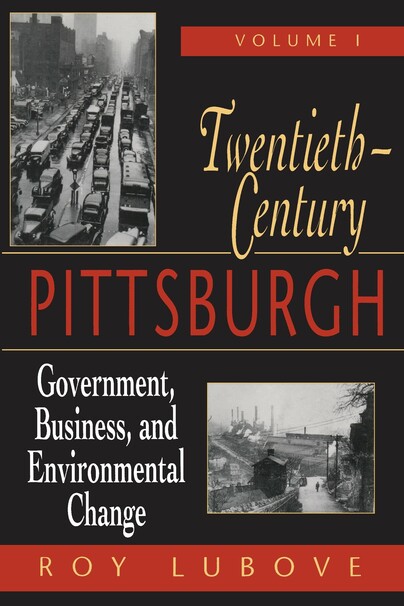
Format: Paperback
Pages: 208
ISBN: 9780822955511
Pub Date: 01 Feb 1996
Description:
Roy Lubove's Twentieth-Century Pittsburgh is a pioneering analysis of elite driven, post-World War II urban renewal in a city once disdained as \u0022hell with the lid off.\u0022 The book continues to be invaluable to anyone interested in the fate of America's beleaguered metropolitan and industrial centers.

Format: Paperback
Pages: 184
ISBN: 9780822955757
Pub Date: 16 Nov 1995
Description:
Politics may be the art of compromise, but accepting a compromise can be hazardous to a politician\u2019s health. Politicians worry about betraying faithful supporters, about losing the upper hand on an issue before the next election, that accepting half a loaf today can make it harder to get the whole loaf tomorrow. In his original interpretation of competition between parties and between Congress and the president, Gilmour explains the strategies available to politicians who prefer to disagree and uncovers the lost opportunities to pass important legislation that result from this disagreement.
Strategic Disagreement, theoretically solid and rich in evidence, will enlighten Washington observers frustrated by the politics of gridlock and will engage students interested in organizational theory, political parties, and divided government.

Format: Paperback
Pages: 274
ISBN: 9780822985778
Pub Date: 15 Jul 1995
Description:
In this pre-World War II analysis of working-class areas of Tokyo, primarily its Honjo ward, Hastings shows that bureaucrats, particularly in the Home Ministry, were concerned with the needs of their citizens and took significant steps to protect the city's working families and the poor. She also demonstrates that the public participated broadly in politics, through organizations such as reservist groups, national youth leagues, neighborhood organizations, as well as growing suffrage and workplace organizations.
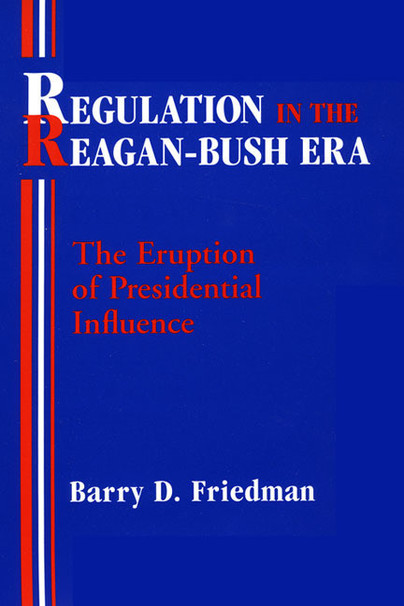
Format: Paperback
Pages: 272
ISBN: 9780822960522
Pub Date: 15 May 1995
Description:
This timely and well-researched study describes for the first tim ethe astonishing acquiecence of executive agency officials, members of Congress, and federal judges to Ronald Regan's assertion of extraordinary new presidential power over the federal regulatory process--the controversial Executive Order 12291.From Harry Truman through Jimy Carter, chief executives complained that federal bureaucrats disregarded their policy preferences. presidential influence over regulatory rule making was limited: congressional committees and interest groups commanded more attention.
Then in February 1981 Ronal regan abruptly departed from tradition by ordering that regulatory agencies must submit proposed guidelines for Office of Management and Budget approval.Barry D. friedman describes how the executive agencies and Congress responded warily and with skepticism, yet allowed the changes to remain; the judiciary was also willing to retreat from time-honored precedents that had preserved agency prerogative and now accorded due respect to the revolutionary Regan reform initiatives. Institutions that competed for leverage in the system continued to exercise restraint in their mutual relations because they recognized taht all benefitted from the others' viability.This book shows that conventional political science theories and models are now obsolete because of the eruption of presidential control into bureaucratic affairs. new review procedures have restructured relations between the president and the agencies and among the government's three branches. because of Regan's radical initiative, President Bill Clinton and his successors will sit at the bargaining table when regulation policy is developed in Washington, and political theorists will have to work from a new conception of presidential prerogative.

Format: Paperback
Pages: 240
ISBN: 9780822955405
Pub Date: 15 Jan 1995
Description:
Examining the Marcos and Aquino administrations in the Philippines, and a number of cases in Latin Amarica, Casper discusses the legacies of authoritarianism and shows how difficult it is for popularly elected leaders to ensure that democracy will flourish. Authoritarian regimes leave an imprint on society long after their leaders have been overthrown because they transform or destroy the social institutions on which a successful democracy depends. Casper concludes that redemocratization is problematic, even in countries with strong democratic traditions.
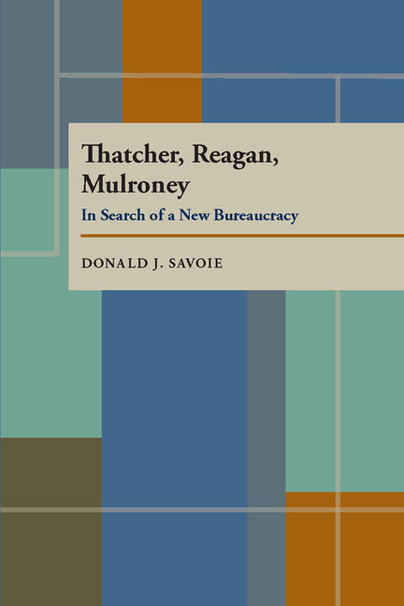
Format: Paperback
Pages: 432
ISBN: 9780822955191
Pub Date: 24 May 1994
Description:
Savoie considers the war of reform waged by the leaders of these major industrial countries. Reagan declared that he had come to Washington to \u201cdrain the swamp\u201d of bureaucracy, and set up the Grace Commission to investigate the operation of the U.S.
government. Thatcher and Mulroney were equally committed to reform and initiated wide-ranging changes. By the end of the 1990s, the changes were dramatic. Many governments operations had been privatized in all three countries, and new management techniques had been introduced. In Great Britain, one observer judged that the changes were historically as important as the collapse of Keynesian economics. Is government now better in these countries, and was political leadership right in focusing on management of the bureaucracy as the villain? Savoie suggests that the reforms overlooked problems now urgently requiring attention and, at the same time, attempted to address non-existent problems. He combines theory and research based on sixty-two interviews, nearly all with members of the executive branch of the governments of Britain, Canada and the United States.

Format: Paperback
Pages: 200
ISBN: 9780822955108
Pub Date: 15 Oct 1993
Description:
Common misconceptions about Japan begin with the notion that it is a \u201csmall\u201d country (it's actually lager than Great Britain, Germany or Italy) and end with pronouncements that the Japanese think differently and have different values-they do things differently because that's the way they are. Steven Reed takes on the task of demystifying Japanese culture and behavior. Through examples that are familiar to an American audience and his own personal encounters with the Japanese, he argues that the apparent oddity of Japanese behavior flows quite naturally from certain objective conditions that are different from those in the United States.
Mystical allegations about national character are less useful for understanding a foreign culture than a close look at specific situations and conditions. Two aspects of the Japanese economy have particularly baffled Americans: that Japanese workers have \u201cpermanent employment\u201d and that the Japanese government cooperates with big business. Reed explains these phenomena in common sense terms. He shows how they developed historically, why they continue, and why they helped produce economic growth. He concludes that these practices are not as different from what happens in the United States as they may appear.
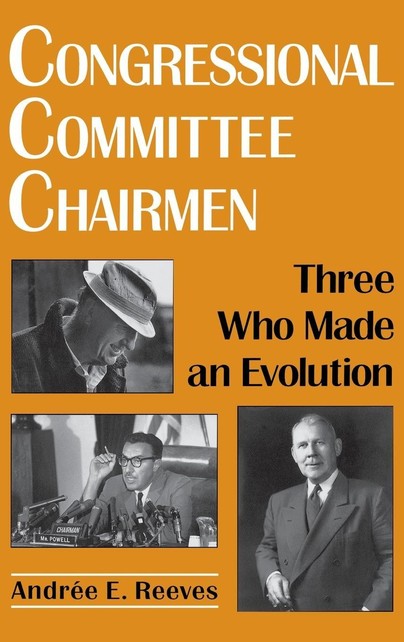
Format: Hardback
Pages: 280
ISBN: 9780813118161
Pub Date: 27 Aug 1993
Series: Comparative Legislative Studies
Description:
Congress does most of its work in committee, and no understanding of that body can be complete without an analysis of its committees and those who shape them. Andrée Reeves now offers a rare glimpse into the workings of committee chairmanship over a span of thirty-three years-how three chairmen operated and how they influenced their committee and its impact.As Reeves demonstrates, the chair is the most important player in a congressional committee-the one who holds more cards than his colleagues and can deal a winning hand or call a bluff.
His use of institutional and personal resources affects the committee, the chamber, and public policy.As a case study, Reeves compares the leadership of three disparate and strong House Education and Labor Committee chairmen who served from 1950 to 1984: Graham A. Barden (D-NC), Adam Clayton Powell (D-NY), and Carl D. Perkins (D-KY). She delves into each chairman's background, orientation, and use of resources. Each had his own brand of leadership, she finds, and a pronounced but different impact on Education and Labor. The committee blocked "progressive" legislation under Barden, facilitated Johnson's Great Society under Powell, and fought tooth and nail to maintain its accomplishments under Perkins.Reeves emphasizes also committee development, including the effects of reforms, the relationship between committee composition and policy output, and committee voting patterns. Rather than advancing smoothly and incrementally, Education and Labor developed in stages that coincided with each chairmanship. And over the years covered, it evolved into a more complex, decentralized, and democratic organization.This is an illuminating study of three men who made a difference in our nation's governance. They left a legacy for succeeding chairmen and indeed for the House, and their chairmanships have had a lasting impact on our society.
















